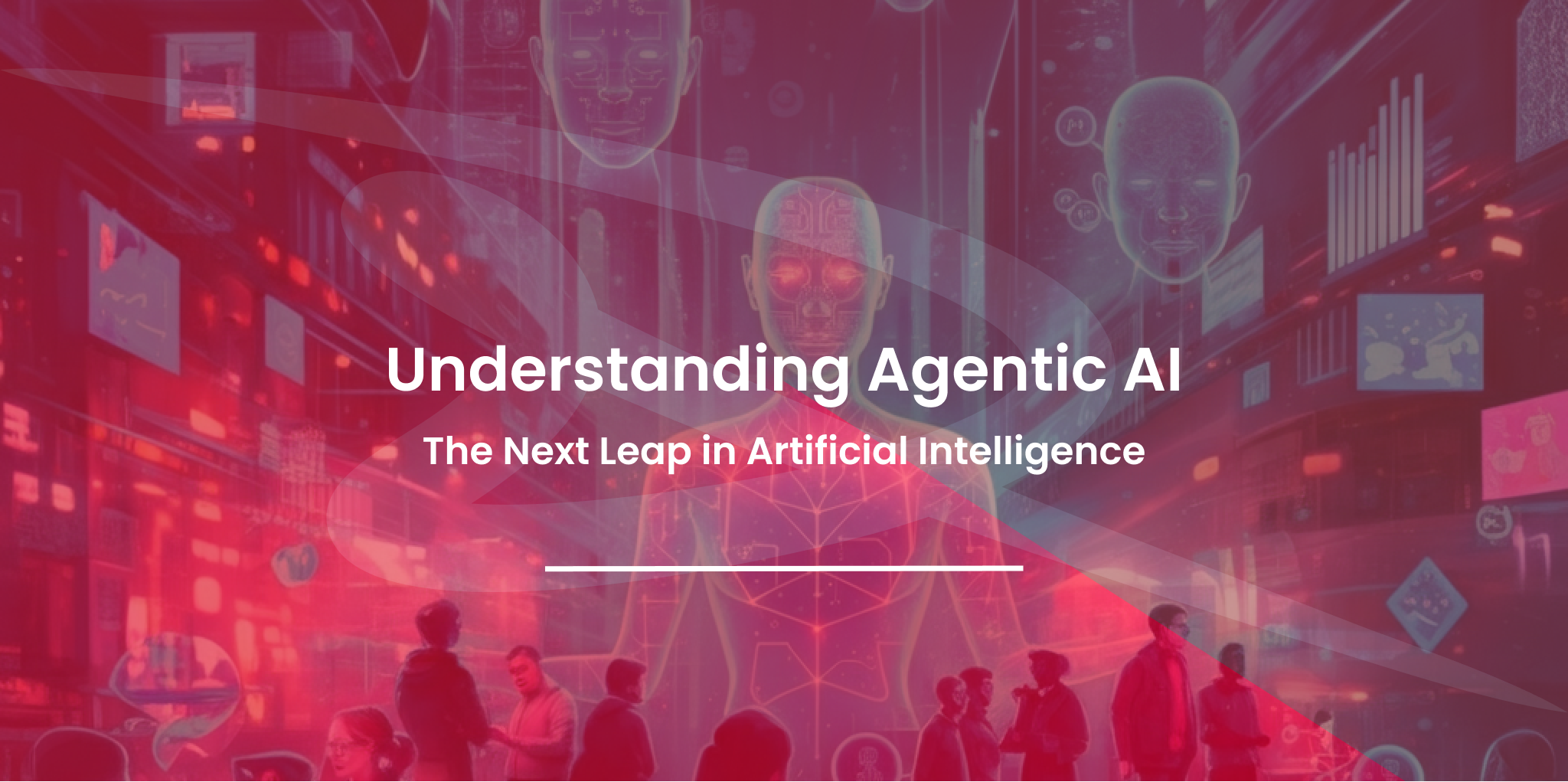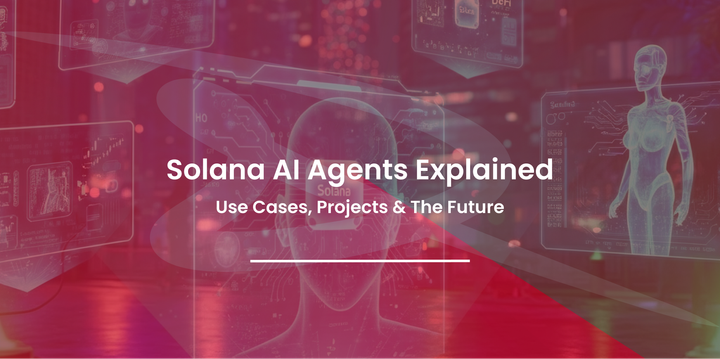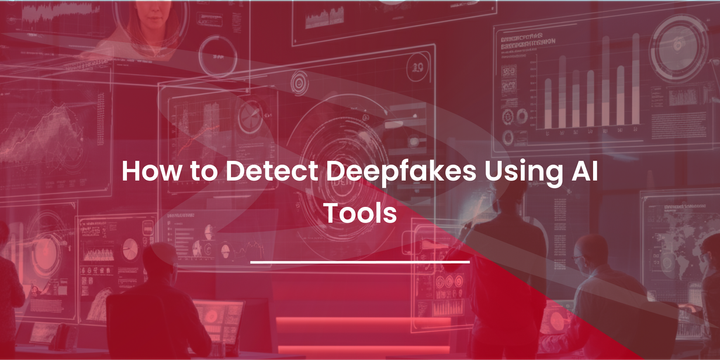Understanding Agentic AI: The Next Leap in Artificial Intelligence
Discover agentic AI, the future of artificial intelligence. Learn how AI autonomy and intelligent agents are reshaping industries like healthcare, finance, and Web3!

Artificial intelligence has rapidly evolved in recent decades, transforming from rule-based systems to machine learning, and now to a groundbreaking concept known as agentic AI. If terms like "AI autonomy," "intelligent agents in AI," or "autonomous decision-making AI" excite you, you're in the right place.
Agentic AI represents a monumental shift in how artificial intelligence systems operate. Unlike traditional AI systems that rely on human intervention for decisions, agentic AI introduces autonomous decision-making, adaptability, and goal-oriented behavior, positioning it as the next step in the future of artificial intelligence.
But what exactly is agentic AI, and why does it matter? This blog explores everything you need to know about agentic AI, its core components, real-world applications, and the benefits and challenges it presents. Whether you're an AI developer, crypto investor, or Web3 enthusiast, understanding agentic AI puts you one step ahead in navigating an AI-driven future.
What Is Agentic AI?
Agentic AI refers to artificial intelligence capable of making independent decisions, acting autonomously, and adapting to new situations without human intervention. At its core, agentic AI mimics human-like intelligence by setting its own goals, processing environmental data, and making decisions aligned with its objectives.
Key Characteristics of Agentic AI
Agentic AI sets itself apart with these critical features:
- Autonomy: These systems can independently decide and execute actions without prior approval or direct input.
- Goal-Oriented Behavior: They actively pursue objectives, analyzing situations to determine actions that align with their set goals.
- Adaptability: Agentic AI evolves by learning from its environment and experiences, allowing it to perform better over time.
While traditional AI relies heavily on pre-programmed instructions and targeted datasets, agentic AI introduces a layer of flexibility, bridging the gap between artificial intelligence and human reasoning.
Differentiation From Traditional AI
Traditional AI systems often solve problems within narrow domains with fixed programming. Agentic AI goes beyond that by identifying goals, dynamically adapting to unpredictable scenarios, and functioning across multiple fields simultaneously. This versatility is what makes agentic AI so revolutionary.
Core Components of Agentic AI
Building agentic AI systems requires integrating multiple AI disciplines to create complete, adaptable intelligent agents.
Components That Power Agentic AI
- Machine Learning (ML)
ML serves as the backbone of agentic AI, enabling systems to process vast datasets, identify patterns, and improve tasks through iterative learning.
- Natural Language Processing (NLP)
Agentic AI uses NLP to interpret and respond to human-like conversations or instructions, improving communication and user interactions.
- Computer Vision
By processing visual data, agentic AI can analyze images, videos, and spatial data for better decision-making.
- Reinforcement Learning
This subset of ML allows agentic AI to make decisions by maximizing reward-based outcomes and improving through trial and error.
- Multi-Agent Systems
Agentic AI’s collaborative approach often employs multiple agents working independently or as a team to tackle complex tasks. These systems emulate team dynamics, improving problem-solving processes.
By integrating these elements, AI developers create powerful, self-governing AI models capable of delivering unprecedented autonomy and adaptability.
Applications of Agentic AI
Agentic AI is not just a futuristic concept; it is already revolutionizing industries around the world. Here are some real-world applications making headlines today.
Enterprise Automation
Agentic AI automates complex workflows, streamlining business processes such as inventory management, resource allocation, and decision-making. Autonomous decision-making AI is reducing manual bottlenecks while boosting operational productivity.
Healthcare
From diagnosing diseases to monitoring patient health in real time, agentic AI transforms healthcare by acting like an autonomous virtual assistant for doctors. Its adaptability enables early detection of anomalies, improving patient outcomes.
Finance
Algorithmic trading has become synonymous with AI-driven automation in finance. Agentic AI models analyze massive market datasets in seconds, identifying opportunities and mitigating risks often overlooked by human traders.
Manufacturing
Predictive maintenance powered by agentic AI reduces equipment downtime significantly. AI systems monitor machinery, flagging potential failures before they happen while optimizing production efficiency.
Customer Service
Intelligent chatbots and virtual agents provide human-like customer interactions and resolve issues independently. They reduce response times and improve the overall customer experience, redefining how businesses manage support.
Web3 and Decentralized Platforms
Agent-based AI architecture plays a critical role in Web3 ecosystems, facilitating decentralized solutions for governance, autonomous smart contracts, and DAO (Decentralized Autonomous Organizations) management.
Benefits of Agentic AI
Why Enterprises Should Care About Agentic AI
The potential advantages of integrating agentic AI systems are game-changing across industries.
- Enhanced Efficiency
Agentic AI frees up human resources from monotonous tasks, allowing organizations to focus on strategic activities.
- Cost Reduction
By automating repetitive workflows and optimizing resource usage, it significantly reduces operational expenses.
- Improved Decision-Making Accuracy
With insights driven by machine learning and big data, agentic AI guides businesses to make more precise predictions and well-informed decisions.
- Scalability in Dynamic Environments
Agentic AI thrives in unpredictable scenarios, making it ideal for scaling businesses in fast-changing markets.
Challenges and Ethical Considerations
While agentic AI marks the next leap in artificial intelligence, it raises challenges that developers and organizations must address responsibly.
- Accountability
Who should take responsibility for AI decisions when autonomous systems operate independently? This question becomes ethically significant in industries like healthcare and finance.
- Transparency
Many agent-based AI systems function as black boxes, making it hard to understand their decision-making processes. This opacity could lead to trust issues.
- Bias & Fairness
AI systems often inherit biases from their training datasets, leading to unfair or discriminatory outcomes. Hardwiring equitable algorithms is essential for ethical use.
- Regulatory Compliance
Countries across the world are working on frameworks to govern AI’s impact. Enterprises adopting agentic AI must adhere to these regulations while evolving responsibly.
The Future of Agentic AI
What’s Next for Agentic AI Development?
The future of agentic AI will likely see its application extend into areas such as workforce collaboration, autonomous vehicles, and space exploration. Augmented AI collaboration, where humans and agentic AI systems work seamlessly together, will redefine the job market.
As agent-based AI architecture continues to evolve, robust governance, training, and ethical frameworks must be in place to ensure society benefits holistically.
Where Do We Go From Here?
Agentic AI is no longer a concept limited to academic discussions or experimental labs. Its ability to autonomously adapt, learn, and decide places it as a pivotal technology in defining the future of artificial intelligence.
Whether you’re an AI developer, a crypto enthusiast, or a Web3 pioneer, understanding agentic AI today means being prepared for the dynamic changes it will bring to tomorrow’s industries.
Take the next step toward integrating agentic AI into your work or projects. Explore cutting-edge examples and tools to elevate your understanding and capabilities!
FAQs
1. What is Agentic AI in artificial intelligence?
Agentic AI refers to intelligent systems that can make autonomous decisions and act independently based on goals, contextual data, and learned experiences. Unlike traditional AI, agentic AI doesn't just react to commands—it proactively initiates tasks and adapts to changing environments.
2. How does agentic AI make decisions?
Agentic AI makes decisions by combining real-time data analysis, machine learning algorithms, and internal goal structures. These systems assess multiple possible outcomes, evaluate potential risks, and choose actions aligned with their objectives—without requiring constant human intervention.
3. What are the applications of autonomous AI agents?
Autonomous AI agents are used in a wide range of industries including:
- Healthcare: Monitoring patients and recommending treatments.
- Finance: Conducting real-time risk analysis and trading decisions.
- Manufacturing: Managing supply chains and predictive maintenance.
- Customer Support: Providing 24/7 intelligent assistance without human operators.
4. What is the difference between agentic AI and generative AI?
Generative AI focuses on creating content—such as images, text, or music—based on training data (e.g., ChatGPT, DALL·E). In contrast, agentic AI is action-oriented and designed to make decisions, initiate tasks, and navigate dynamic environments, often working toward predefined goals.
5. What are some real-world use cases of agentic AI?
Some real-world examples of agentic AI include:
- Autonomous vehicles that navigate traffic.
- AI-powered trading bots that react to market shifts.
- Robotic process automation (RPA) in enterprise workflows.
- Smart assistants that can plan and act beyond simple Q&A tasks.
6. How does agentic AI compare to traditional AI?
Traditional AI relies heavily on human-defined rules and responds to specific inputs. Agentic AI, however, has the ability to set its own sub-goals, evaluate changing environments, and act independently—making it significantly more adaptive and proactive.
7. What are the ethical concerns of autonomous AI systems?
Ethical concerns include:
- Accountability: Who is responsible if an AI agent causes harm?
- Bias: Ensuring that AI decisions are fair and unbiased.
- Transparency: Making AI decision-making explainable and auditable.
- Autonomy: Preventing AI systems from making decisions that override human values.
8. Will AI agents replace human decision-making?
While agentic AI can enhance decision-making by offering speed, precision, and 24/7 operation, it is not likely to fully replace human judgment—especially in areas requiring ethics, emotion, and context. Instead, AI agents will increasingly augment human roles.
9. What is the role of humans in agentic AI systems?
Humans play a crucial role in:
- Setting goals and defining ethical boundaries.
- Monitoring AI behavior and intervening when necessary.
- Training and improving AI models. Agentic AI is best used as a collaborator, not a replacement.
10. How is agentic AI used in finance and healthcare?
In finance, agentic AI is used for fraud detection, algorithmic trading, and real-time investment analysis.
In healthcare, it supports clinical decision-making, personalized treatment plans, and continuous patient monitoring through intelligent systems that adapt to patient data.




Comments ()